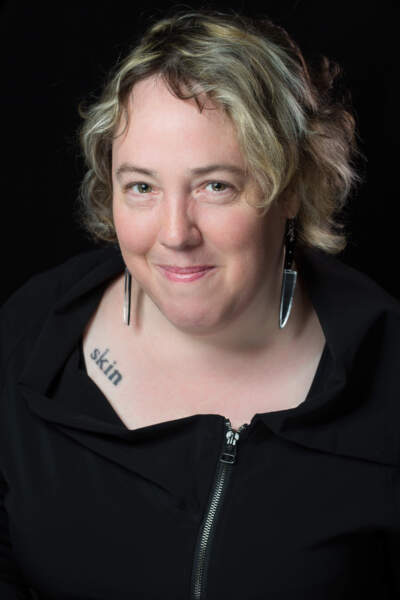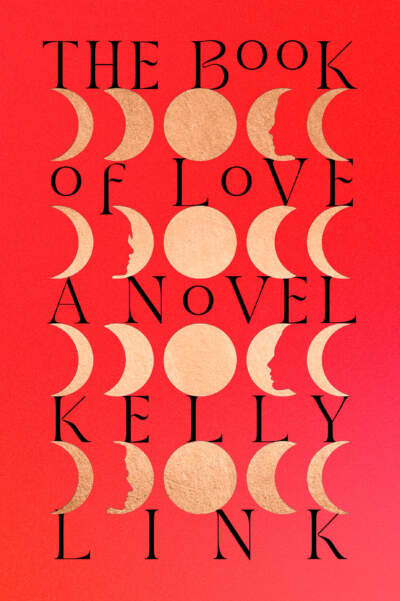Advertisement
Review
Kelly Link's debut novel 'The Book of Love' is a wild — and long — ride
Being an author of fiction is, in many ways, like being a god. You can create people out of nothing and make them do and say whatever you want. You have the power to shape and mold reality to your whims and, should you desire, the ability to abandon it entirely in order to drive the action of the story toward your preferred conclusion. Indulging that urge can take a mundane story and make it extraordinary. Go too far, however, and the consequences can be ruinous. It can throw the world you’ve imagined off its axis, make it unfathomable, confusing, incomprehensible.
Northampton author Kelly Link has proven herself to be a master at threading this very precarious needle. Across five collections of short stories (including last year’s “White Cat, Black Dog”), Link has garnered a stunning array of accolades, including a 2018 MacArthur “genius” grant — a testament to the impact of her unique blend of fantasy, cosmic horror and realism. Her 2016 collection, “Get In Trouble,” was a finalist for the Pulitzer Prize for fiction, a significant recognition for a work in this genre.

“The Book of Love” is Link’s first novel and she’s decided to make the most of it by going long. Very long. At 640 pages, she takes every opportunity to add as much flavor and color to her story as possible. The result is a sprawling, at times majestic, story with a richly detailed setting, a large cast of well-rendered, endearing characters, and a plodding, ponderous approach to plot development that will test readers’ endurance.
Set in the quaint, seaside community of Lovesend, Massachusetts, the story centers on three recently deceased high school students — Laura, Daniel and Mo — who have been brought back to life through obscure means for an uncertain purpose. They find themselves caught in the middle of an infernal contest between Mr. Anabin, a supernatural figure who has been masquerading as their music teacher, and Bogomil, who lords over the dismal limbo in which the three had been trapped since their untimely demise. The teens are given a series of vague magical tasks that they must complete if they wish to remain among the living. Eventually, they discover that the fate of their town, the world — perhaps the fabric of reality itself — is on the line.
The particular magic of “The Book of Love” lies in the incongruity between the arch, oblique pronouncements of the otherworldly characters, with their grand, cosmic designs, and the ironic detachment of their teenage foils, who must still navigate their ordinary, small-town lives and relationships while serving as pawns in an eon-spanning conflict that has potentially reality-ending stakes.
For the kids, the petty entanglements of garage band politics and high school romance are about as important to them as the question of whether or not they’re ultimately going to be banished to an unfathomable nether realm for all eternity. Their dialogue is Whedonesque throughout, with the quippy, self-aware insouciance familiar to fans of “Buffy the Vampire Slayer.”
“You and Bogomil stand in balance,” the recently resurrected Mo says to the godlike Mr. Anabin. “Anybody else I should know about? Mrs. Paulsen in chemistry, is she a Satanist? All those pewter wolf accessories. The floor-length hemlines. I just think you should tell me if she is.”
“The Book of Love” reminds one a bit of a Cthulhu plushie — eldritch, Lovecraftian horror presented in a kitschy, tongue-in-cheek style. The friction this dissonance creates can sometimes generate sparks. Over 600 pages, though, there are plenty of times where it can rub you the wrong way, or otherwise dull what should be a profound moment.

The glib manner in which the kids treat their powerful tormentors often deflates the tension when it should be ramping up. What is perhaps the book’s most momentous and consequential development, one that should have devastating emotional repercussions for Laura and her sister, Susannah, is practically glossed over and denied the weight and gravity it deserves, perhaps because it would spoil the otherwise irreverent tone of the story.
Ironically, for a work of fantasy, it’s the mortal characters that are the most varied and engrossing; in contrast, the supernatural figures come off as a bit stock, particularly in the stilted, portentous way they speak. Laura’s hot-and-cold relationship with her sister, Daniel’s care and concern for his brood of younger siblings, and Mo’s struggles with loneliness and isolation as a gay, Black kid in a lily-white town, are wonderfully textured, full of feeling and depth. Amid the book’s sensational, supernatural action, Link has crafted a well-wrought, heartrending, coming-of-age story.
As the book crawls toward its climax, Lovesend begins to unravel; the kids have begun flexing their own magical muscles and Malo Mogge, a “goddess” of malevolent capriciousness, has arrived to wreak havoc. A good example of the god-author gone awry, she imbues the story with a surrealist chaos, hoping to achieve her nefarious goals through self-serving manipulations of reality. She’s fun, she’s flashy, and she’s got no concern for whether anything makes sense.
Laura, Daniel and Mo rebel against the constraints put on them by Anabin and Bogomil, and endeavor to overthrow Mogge in order to become the authors of their own conclusions, to put right what’s been thrown out of balance. But in some cases, they learn what all authors ultimately find out: that ink is indelible and at some point, no matter how powerful you are, what’s been done can’t always be undone.
“The Book of Love” is a wild ride, and Link goes to great lengths to hold your attention as the story careens from one extreme to another. But it’s fair to say that the lesson of the book is that even the most powerful storytellers can benefit from some reining in.
